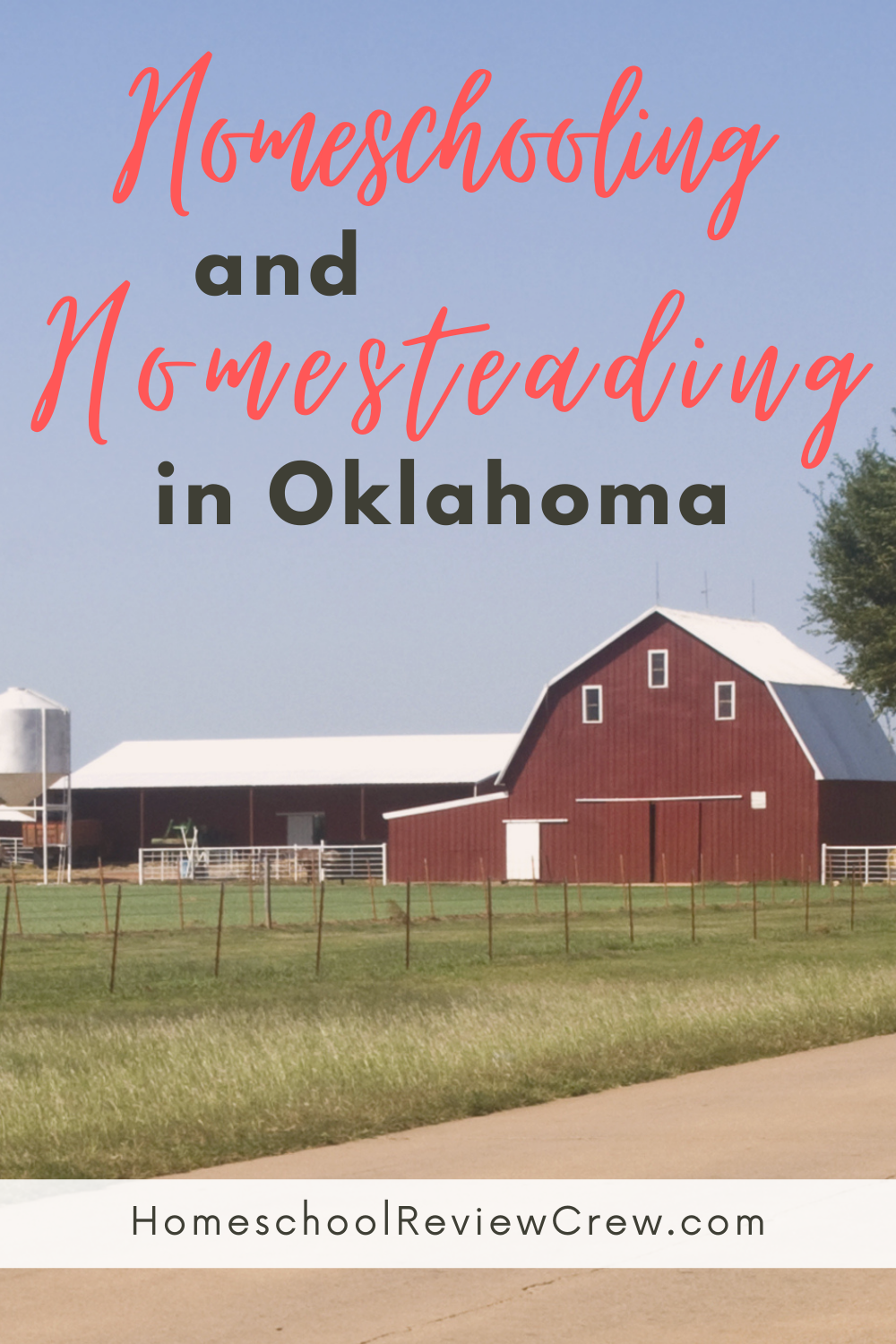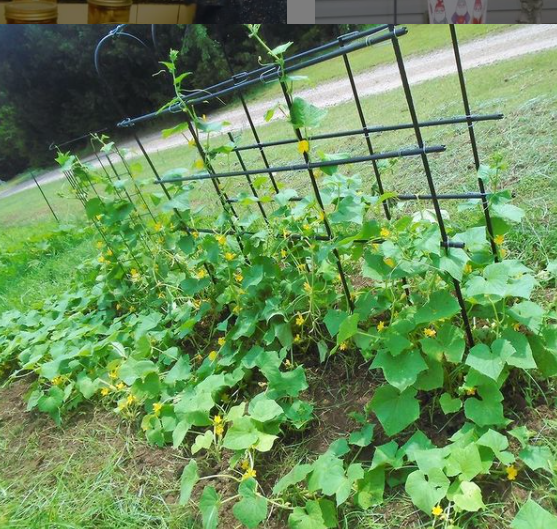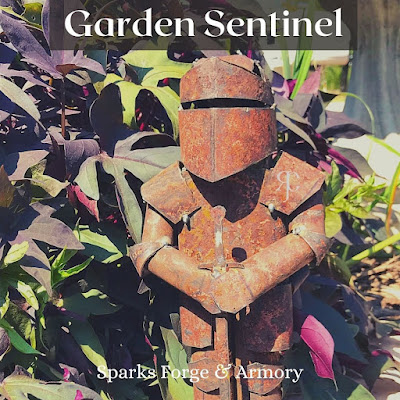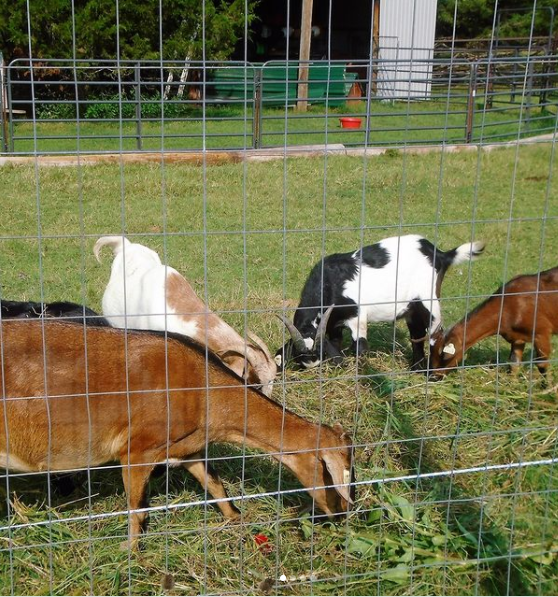Over at the Homeschool on the Range blog, Yvie shares about her family’s homeschool experiences. She also writes about life on the farm, shares experiences while roadschooling, and provides novel studies to use in your homeschool. In addition to providing curriculum ideas, she also writes reviews regularly. This week we interviewed Yvie about how her family incorporates homeschooling and homesteading into everyday life.

Q. Yvie, please tell us about your family and what homesteading means to you. When and why did you start?
A. We live on acreage in rural Oklahoma. It started out as a way to unwind from the daily grind, back before kids, and morphed into something of a hobby farm/homestead. We’re not in the ‘super serious homesteaders’ category but have been doing it for nearly twenty years. We are an extended family, with kids, parents, and grandparents all living together.
Q. What is a typical day like for you and your family?
A. A typical day is getting up, tending to animals, tending to the garden (in summer), and then starting school. We take lunch together as a family, since both mom and dad work from home, and then head back to school for a bit. The kids spend time each day working on entrepreneurship as well. In the evenings, they take turns helping with dinner and clean up or doing evening animal chores. Each of the kids gets a quiet ‘Grandma’ night each week, where they have one-on-one time with Grandma (it used to be grandparents’ night, but Grandpa recently passed). Based on their reactions on the rare occasion this doesn’t happen, this is their favorite part of the week!

Q. What about an atypical day?
A. An atypical day is also known as errand day or appointment day. As we live so far from shopping and medical facilities, it’s an entire day to head there and back, so we try to ‘stack’ as many things on one day as possible. Today was actually an atypical day . . . we did morning chores, headed into the city for an orientation meeting at the community college, did grocery shopping, picked up supplies from the farm store, delivered eggs, and then headed back home. Then it was time for dinner and evening chores. It takes a long time to drive places, but it’s been kind of nice to be so far from civilization during this pandemic!
Q. How does your family incorporate homeschooling into your homesteading lifestyle?
A. It all kind of ends up in the same ball of twine. Our blacksmithy has to use algebra and geometry for creating his designs. He has to use metallurgical principles and science skills to use metals correctly. And he needs to know his history to accurately recreate pieces.
Our animal kid studies use science to meet his animal’s needs and provide good care. He uses math to determine his balance sheet for money in/money out. They need writing and communication skills to reach their customers.

Q. How would you characterize or describe your homestead? Do you breed and raise animals? If so, which ones? Do you raise crops? Can you share about your farm?
A. These days we raise and breed goats, cows, and chickens. We also have a large garden, though this year was a really strange weather year, so all that’s currently growing is about a million types of tomatoes! We’ve been taking those to donate at the local nursing homes the past few weeks because . . . I just can’t eat one. more. tomato. Our farm is small, compared to most around us, but large by suburban or urban standards. It’s the perfect size for our family’s needs.
Q. What chores do you incorporate into your homeschool schedule?
A. All of them. Cooking, cleaning, laundry, feed, animal care, garden care, brush-hogging, mowing, burning, fence repair, small machine repair, and anything else that needs to be done. A homesteader has to be something of a Jack-of-all-trades! Fortunately, with four (three) adults, we can do most things because at least one of us has the knowledge.
Q. What recommendations would you have for someone who wishes to adapt their homeschooling lifestyle to incorporate homesteading?
A. It’s really easy to get excited and then get overwhelmed. Take it slowly. Don’t jump in feet first and try to do everything at once. Choose a project and do it first. Then add something else, one at a time, until you get the homestead you want.

Q. Are there any unique homeschooling opportunities afforded to you because you are homesteading?
A. Well, I don’t know many 16-year-olds who have their own blacksmith shops, so that’s pretty cool. We also have lots of fresh vegetables to work with for home economics. And as a family, we work together quite a bit…but I think many homeschooling families share that same closeness, regardless of homesteading status.
Q. Is there anything else you would like to share regarding homesteading?
A. It has provided a fantastic base for our children to launch small businesses. They’ve learned work ethic, responsibility, and entrepreneurship skills. One of them runs an egg business, and the other just launched his professional blacksmithing business!
Want to Learn More About Homesteading?
Read our previous guest posts and interviews or check out the Homesteading course on SchoolhouseTeachers.com.

The homeschool homesteading course is designed for anyone who has a desire to live more independently and prepare much of what is needed each day using their own hands. In this elective course, the student can learn how to work for what they want by making it themselves, instead of participating in an “on demand” society. Homeschool students of all ages learn patience, along with the skills needed to make their own cleaners for the home, sunscreen, homemade ketchup, and dry mixes, as well as how to choose animals and prepare for emergencies, and much more. Learning the patience and usefulness of “doing it yourself” can be immensely helpful not only in the sense of living a healthier life but also for the budget!
Homeschool families can live more simply by learning what many generations of people have known, but the current generation seems to have forgotten—live simply, make do with the basics, and take an active part in gaining the benefits for yourself, your family, and the world God has given us by having fewer chemicals in the home.

1 thought on “Homeschooling and Homesteading in Oklahoma”